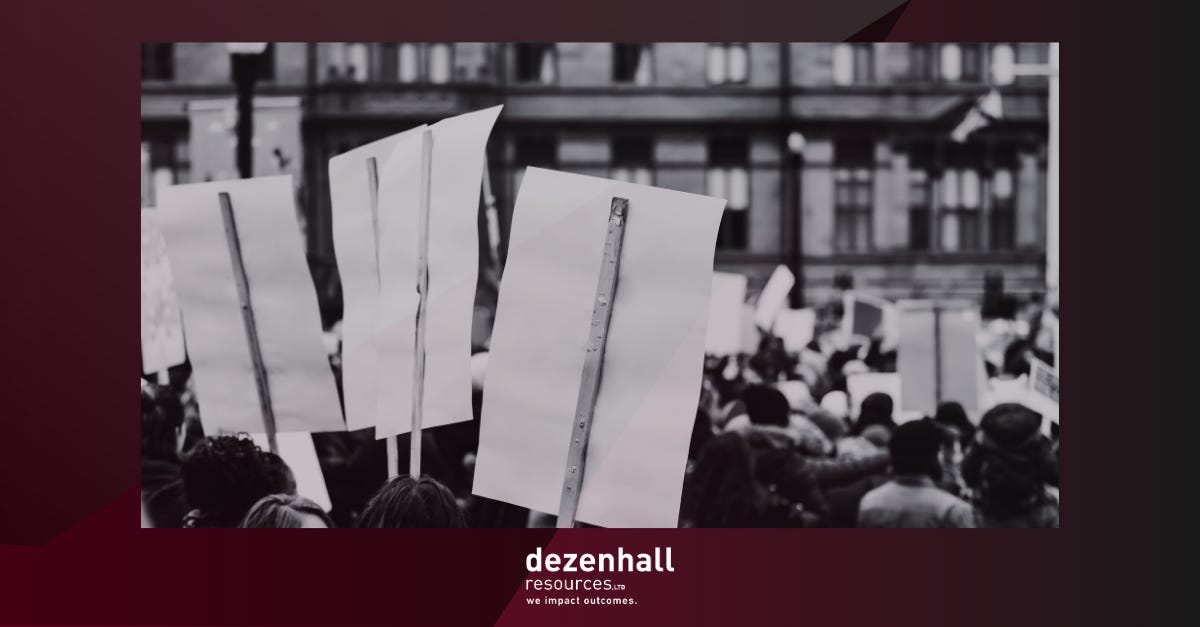Sunlight Reaches the Activist Racket
Corporations and campuses are taking baby steps to stand up to certain forms of activism.
There are three reasons for this.
First, there has been a sentiment built into organizational software that treats any seemingly progressive claim as being an accepted emblem of the zeitgeist. Accordingly, to resist the position of one’s critics is to invite your doom.
What organizations are beginning to discover is that while their activist critics are often well-organized, they don’t necessarily represent the broader audiences they imply. This is especially true on campuses where most students want an education, not to mention that the Scarsdale Socialists organizing campus protests don’t do well when deprived of gluten-free ramen. A recent poll showed that 81 percent of students believe protestors should be held accountable for the campus destruction they cause.
Second, both companies and schools have protagonists who have been exposed as being woefully ignorant. As we saw during Bud Light’s Dylan Mulvaney fiasco, those responsible hadn’t the slightest idea who comprised their demographics. How could sane marketing executives believe that a transgender spokesperson would appeal to weekend bros who have for decades thrown back grained-based alcohol during football games?
Campus intellectuals have lately betrayed that they do not know the definition of genocide and do not know which river and sea are at issue in their play for a fresh pogrom. Investors are wondering why they should put a dime into oblivious companies, and parents can’t figure out why they should spend a fortune having their children indoctrinated in Maoist tactics when they can get a good education at less prestigious schools for a fraction of the price.
Finally, as far as campuses are concerned, there is the issue that has yet to explode: The billions of dollars that Hamas surrogates have invested in American universities to infiltrate classrooms and curricula, faculty and students. This has been the most effective foreign “active measures” campaign since the KGB convinced three-quarters of Americans that the CIA assassinated JFK.
Case in point on the pro-Hamas playbook (fostered by Saul Alinsky):
-
A school designates a protest space at Point A where free speech can be exercised;
-
Activists identify an elderly or female protestor and encourage them to protest at Points B through Z, which have not been designated;
-
The activists’ handmaidens in the media are sent to the off-limits locations;
-
The designated vulnerable protestor is asked to leave, removed, restrained or arrested and falls to the ground screaming as sock puppets wail about Kent State in the background (but in range of a camera);
-
The media cover the pseudo-event precisely as intended; and
-
An effort by faculty and students is initiated to remove the university shot-caller for “mishandling” the affair.
Prediction: If you thought Rep. Elise Stefanik’s interrogation of the Harvard, Penn and MIT presidents was brutal, wait until she gets her hands on the funding that’s been going into these schools from Islamist interests. Why should we care? Because these schools that have been getting billions from countries that are enemies of the United States also receive federal funding from our government. The consequences will be more significant than a simple head-rolling.
I have seen the beginnings of a correction in how corporations deal with activism. They are reconciling legitimate changes in demographics with the demands of truly diverse (as opposed to fake diverse) consumers, shareholders and consumers. Companies will embrace diverse audiences as it makes business sense to do so — as they should. The Diversity Equity and Inclusion (DEI) movement will be tweaked to reflect the realities of the marketplace, not the lobbying of the miniscule posing as the many. Leaders will also realize that companies that tread lightly on social issues tend to fare much better than those that dive in headfirst based on the agendas of a specific cohort of employees and non-government organizations.
The campus situation is trickier because ideology, not profit, guides higher education. Columbia’s president, who has been calling for an end to antisemitism, was found to have made remarks seemingly justifying terrorism. Harvard, which formed a task force on antisemitism, was recently found to have brought on a commencement speaker who has compared Israel to the Third Reich.
If I had to guess, I’d predict that the Columbias and Harvards will remain very much the same: institutions of indoctrination. Some prospective employers will bypass their graduates. Elite schools that recognize the hazards to their brands will surf the controversies more lightly. Colleges that are considered less prestigious may enjoy a renaissance to the extent that is possible in an age when the value of a degree is being questioned.
Pendulums, by definition, swing. We’re at the beginning of a swing back, although the actions of corporations will more accurately reflect public opinion than those of universities.


